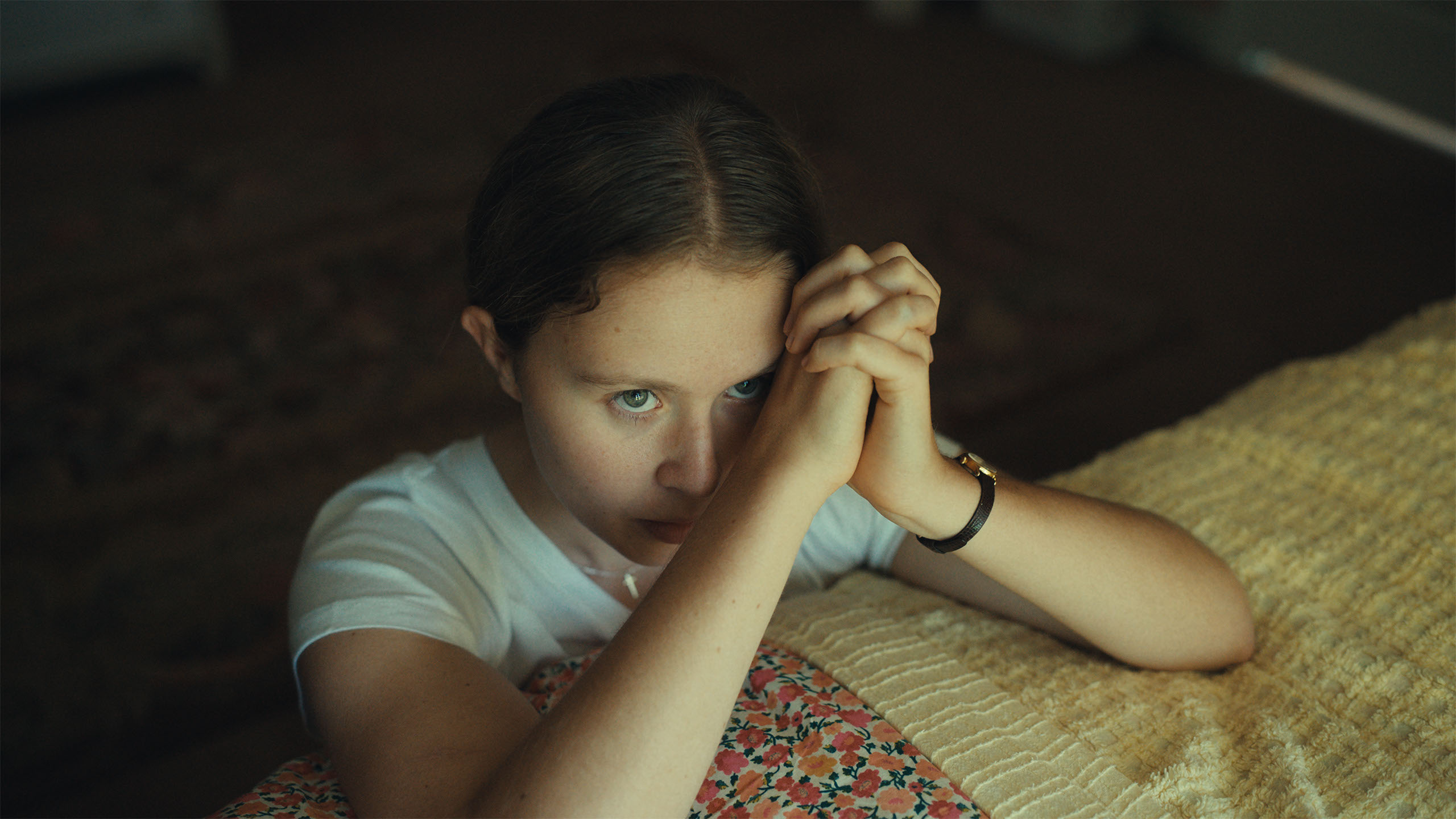Sundance review: Eliza Scanlen proves ecstatic anew in 'The Starling Girl'
 Tuesday, January 31, 2023 at 7:20PM
Tuesday, January 31, 2023 at 7:20PM by Jason Adams

Usually when I write about getting “representation” on-screen I’m talking about the gay stuff – like when Call Me By Your Name knocked me flat with its warmly lyrical depiction of a neurotic gayling’s first same-sex longings. And there was gay stuff at Sundance this year that I felt deep in my bones – the darkly funny internalized homophobia of Sebastián Silva’s Rotting in the Sun squarely hit the mark. But no movie felt more like a mirror at this year’s fest than did writer-director Laurel Parmet’s debut film The Starling Girl, which explores the world of rural Christian fundamentalism with the crystal cold precision of one who barely survived that very thing. I speak from my own experience...
The Starling Girl stars up-and-comer Eliza Scanlen. Though “up-and-comer” only fits if you haven't been paying attention after a string of stellar turns in Little Women and Babyteeth and Sharp Objects. In short she's very much arrived and is worth actively seeking out every time she works. Here she’s playing Jem Starling, a deeply and seriously religious 17-year-old who’s firmly ensconced in a like-minded community.
Trapped amid the tumult of hormonal confusion rubbing abrasively against her church’s teachings, her growth’s been stunted. Outwardly Jem shows a pious lack of interest in her family’s pressure to begin “courting” with a nice boy her age. Yet you can tell by her longing glances at the older preacher’s son Owen (a doggedly excellent Lewis Pullman) that her secret places are stirring. Owen, an engaged man who was spreading the gospel in Puerto Rico, came back with some wacky ideas that are wildly out-of-place in Kentucky. But they appeal to and simultaneously terrify Jem, whose own fire finds itself channeled into the youth dance group where she keeps getting in trouble for standing out just a whisper too much.
Parmet ratchets up these tensions until something’s bound to pop, showing a profound and lived-in understanding of what it feels like for a girl (or a boy, in my personal instance) whose desires lead them astray from the path set before them by insistently well-meaning people who keep pushing them a certain way. The wrong way for that girl or boy. The way morality’s wielded like a cudgel to stamp out nonconformity – the way “joy” itself is commodified and sanded down to something as safe as its is meaningless; a plain pie crust at a bake-sale.
It’s not as if we haven’t seen this tale of oppressive religion duking it out with teenage coming-of-age before, but there’s something truly electric about The Starling Girl all the same. Perhaps it’s just the fierce and fearless turns from Scanlen and Pullman, who generate real heat even as the film relentlessly side-eyes the askew power dynamics at hand. (There’s also fine work from the ever-reliable Jimmi Simpson, playing Jem’s father who’s going through his own tumult in the wake of an old friend’s death.) But I think the film's success is as simple as how exquisitely honest the world Laurel Parmet paints feels, all the way from the long sleeves to the tut-tutting acquaintances Yes, this was that. This was how it was. And lord I don’t miss you.
The Starling Girl premiered at Sundance and is seeking US Distribution.


